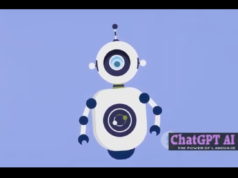How can chatbot developers harness advanced AI capabilities to enhance the future of chatbot development?
The Future of Chatbot Development: Unlocking Advanced AI Capabilities
Introduction
Chatbots have become an integral part of our daily lives. From customer support to personal assistants, these AI-powered conversational agents have revolutionized the way we interact with technology. However, as technology advances, so do the expectations from chatbots. In recent years, there has been a significant push towards unlocking advanced AI capabilities to create more intelligent and human-like chatbots.
Enhanced Natural Language Processing
One of the key areas in the future of chatbot development lies in enhancing natural language processing (NLP). Currently, chatbots rely on predefined rules and patterns to understand and respond to user queries. However, with advanced AI capabilities, chatbots will be able to better understand the context, sentiment, and nuances of human language. This will result in more accurate and meaningful responses, leading to a more natural and engaging conversation.
Emotional Intelligence
In the quest for more human-like chatbots, developers are actively working on integrating emotional intelligence into these AI agents. By analyzing user inputs and leveraging sentiment analysis, chatbots will be able to detect and respond to the emotional state of users. This will allow for a more empathetic and personalized interaction, enhancing the overall user experience and building stronger connections with users.
Deep Learning and Machine Learning
Advancements in deep learning and machine learning techniques are playing a crucial role in unlocking advanced AI capabilities in chatbot development. By utilizing neural networks and training models on large datasets, chatbots can improve their ability to learn and adapt over time. This enables them to handle complex conversations, understand user preferences, and provide personalized recommendations or suggestions.
Multi-modal Capabilities
Another exciting aspect of the future of chatbot development is the integration of multi-modal capabilities. This includes the ability to process and respond to text, voice, images, and even gestures. These advanced AI capabilities will enable chatbots to comprehend user inputs from various sources, providing a more versatile and user-friendly interaction. For instance, users could ask a chatbot a question through voice, and it could respond through a combination of text and visuals.
Conclusion
The future of chatbot development is promising as we witness significant advancements in AI capabilities. From enhanced natural language processing to emotional intelligence, and from deep learning to multi-modal capabilities, chatbots are becoming more powerful and intelligent every day. As these advanced AI capabilities become more accessible and easier to integrate, we can expect chatbots to become even more integral in our daily lives, transforming the way we engage with technology.









